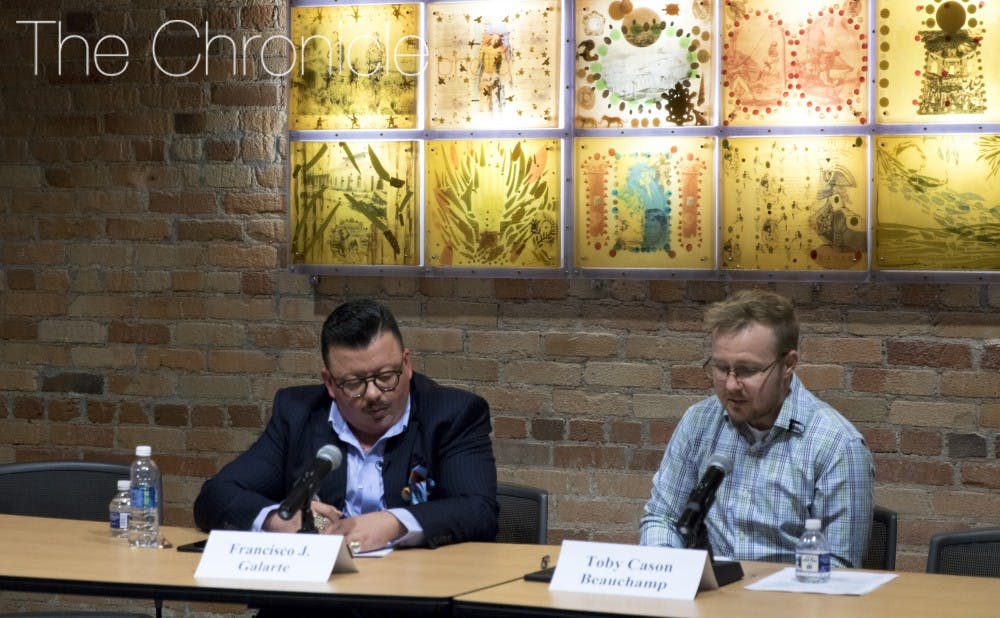The John Hope Franklin Humanities Institute hosted a panel Monday afternoon to discuss the implications of transgender studies on the field of gender studies.
The event featured Francisco J. Galarte, assistant professor of gender and women's studies at the University of Arizona, as well as Toby Beauchamp, assistant professor of gender and women's studies at the University of Illinois at Urbana-Champaign. The two scholars discussed how some areas of transgender studies can pose problems to the decades-old framework of gender studies and how they teach transgender studies in their own classrooms.
“I do not teach students to approach papers from the trans perspective," Galarte said. "I teach students a way to approach the texts that does not emphasize mastery or closure, but to gain pleasure from the unfinishedness."
He explained that he situates the essays he uses in his classes within a larger body of work—for example, transgender work in the context of Chicano culture—because he believes it is necessary to place the writings in context to fully understand them.
“Some of the presumptions of Chicano culture, the masculinity and the patriarchy, render the trans identity impossible,” Galarte said.
Galarte added that he has adopted an intersectional approach within his classroom. He presented an example of using lesbian separatism within Chicano studies to see the possibility of transgender within that particular context, whereas others might see it as impossible.
“Where it’s easy to just critique one essay on its own, treat it as a whole larger narrative within an arc in terms of a person’s work," Galarte said. "This gives students the tools to critique [the author] in the first place."
Beauchamp addressed two main issues—strategies for introducing transgender concepts to gender and women’s studies classes with students who have limited familiarity, and challenges in pursuing these topics with people who have relevant personal experiences but less knowledge about literature.
“The simple inclusion of transgender studies did little to reshape the framework of gender and women’s studies,” Beauchamp said. “We want to get rid of this additive model, where trans are exceptions.”
For situations in which most people in the classroom are unfamiliar with the concept of transgender, Beauchamp said he avoids introducing transgender studies as a special lecture or unit because that preserves a “pedagogical framework that maintains hegemonic gender.”
He studied the patterns in introductory gender and women’s studies textbooks, and noted that most books are organized around issues in relation to women—for example, “women and health” or “women and war.”
In contrast, Beauchamp favors a textbook that never explicitly discusses transgender studies.
“[That kind of textbook] implicitly refuses the notion that we can easily recognize what is trans and what is not trans,” Beauchamp said.
On the other hand, when Beauchamp is teaching an upper-division class with students who are personally familiar with the material, he faces different challenges.
“How can we encourage students to critically examine [relevant] terms when those may be the terms that they themselves are using?” Beauchamp asked.
He suggested that professors “ask students to think about what the concept of transgender actually encompasses” in a separate unit on naming and classification.
Beauchamp and Galarte both agreed that transgender studies is an emerging field and that the efforts in their classrooms contribute to it.
“I see our work together as questioning the value of truth as applied to the concept of transgender,” Beauchamp said.
Get The Chronicle straight to your inbox
Signup for our weekly newsletter. Cancel at any time.

